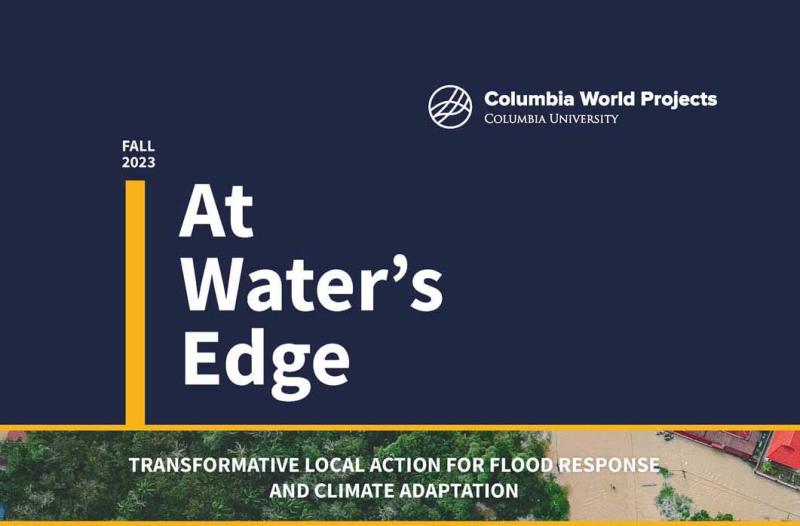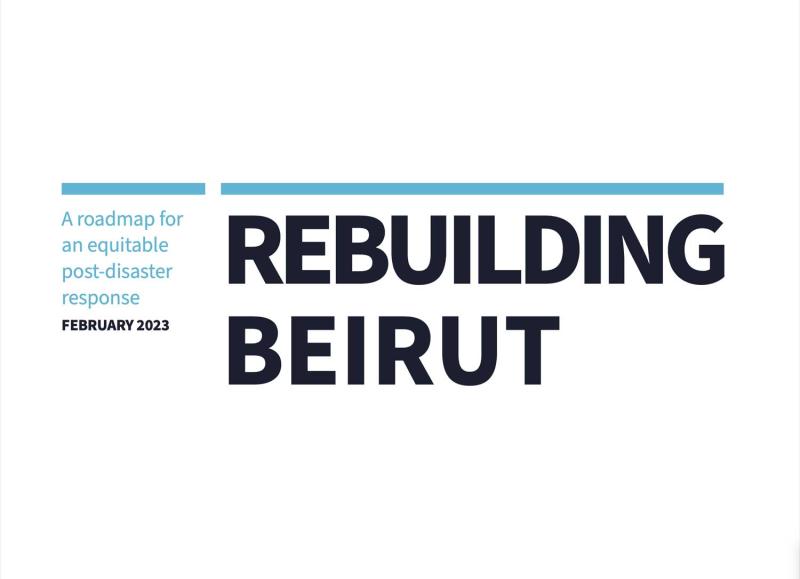Latest Updates

Transformative Local Action for Flood Response and Climate Adaptation
Rebuilding Beirut: A Blueprint for Post-disaster Recovery (View PDF)
Digital Tools for a Responsive Government (View PDF)
Renzo Piano on Inclusive Cities (Watch the event)
Overview and Background
Columbia World Projects’ (CWP) research and engagement work on inclusive urbanism explores the conditions under which communities throughout cities achieve social, economic, climate and political justice.
By developing a comparative understanding of the ecological, social and political forces that shape urban space, our work encourages effective problem-solving, participatory approaches, and innovative thinking among experts. With a base of scholars and practitioners from Columbia University, we work in partnership with government, civic organizations, nonprofits and researchers across disciplines to develop communities that advocate for and, in some cases, implement recommendations that emerge from our work.
New York City Collaborative
The Collaborative builds and sustains a space that brings together Columbia faculty whose research engages New York City as both an historical subject and a zone of applied research. This work supports interdisciplinary understanding and engagement with community organizations, centering their priorities and research needs within the Columbia community.
This work emerges from a partnership established in 2019 with New York City’s Civic Engagement Commission (CEC) to map opportunities and risks associated with digital platforms intended to promote civil society participation and empowerment. CWP’s report, Digital Tools for a Responsive Government, documents effective uses of digital technologies to achieve these ends. In addition to creating a play-book for the NYC CEC, we assessed the role that technology platforms that connect citizens to government — civic technology — can play in deepening civic life and increasing trust in government.
Post-Disaster Recovery and Rebuilding
Urban disasters and responses to them can compound inequalities. Whether through natural events or human action (and frequently both), the resulting devastation frequently falls hardest on historically disadvantaged populations. Resources for rebuilding and recovery often flow faster and in greater sums to groups already privileged by income, wealth, economic opportunity, race or ethnicity, and political support. Post-disaster frameworks and emergency responses, even after huge expenditures to rebuild affected regions, often insufficiently protect and support underserved communities, and at times even worsen their livelihoods and increase their vulnerability to subsequent shocks.
The first project exploring these themes involved a partnership with the Beirut Urban Lab at American University of Beirut. Over a series of working group meetings organized in partnership with local institutions, global experts and leaders from international organizations, this initiative examined questions about how to center the needs of local communities in the reconstruction of Beirut following the port explosion on August 4, 2020. The blast exposed and amplified already existing vulnerabilities present in the areas affected, including increased displacements of residents, uncontrolled gentrification, growing inequality, neglected infrastructure and an absence of effective public agencies and public spaces. These gatherings, which took place from 2020 to 2021, identified and recommended concrete interventions that should be taken up by international organizations involved in reconstruction efforts, by the government of Lebanon, and by NGOs working on reconstruction efforts. CWP’s report, Rebuilding Beirut: A Roadmap for an Equitable Post-disaster Response, captures priorities and principles to underlie reconstruction.
A second project looked at possibilities for renewal and redress in the face of these ecological and social harms. Marking the ten-years since Hurricane Sandy devastated the coastline of New York City, we convened scholars, policymakers, private sector leaders, government practitioners and activists from around the world to imagine new approaches to ensuring city dwellers affected by flooding receive support and have a voice in how recovery is designed and implemented. Capturing insights from these meetings, the latest report from CWP’s Research & Engagement team is At Water’s Edge: Transformative Local Action for Flood Response and Climate Adaptation. The report details strategies for more inclusive, equitable, and effective water governance. It highlights instances of water management challenges faced by communities in New Zealand, Indonesia, Puerto Rico, Mexico and New Orleans and emphasizes locally-borne solutions that center community participation in governance processes.

Columbia World Projects Provides Recommendations on Digital Tools for Responsive Government to New York City’s Civic Engagement Commission
Previous Initiatives
The above initiatives draw on and build on questions and insights from explorations held in the first years of CWP. Information about each follows.
Southern Urbanisms
This initiative brought together leading practitioners, policymakers and researchers from across the world - particularly urbanists located in the Global South, to arrive at a more adequate understanding of urban governance, social cooperation and economic strategies visible in cities in Africa, Asia and the Americas. The initiative also examined how the COVID-19 pandemic has reshaped cities, giving rise to new coalitions related to housing and infrastructure, service provision and advocacy. Members of the initiative first met in July 2020 and gathered on a recurring basis over two years.

